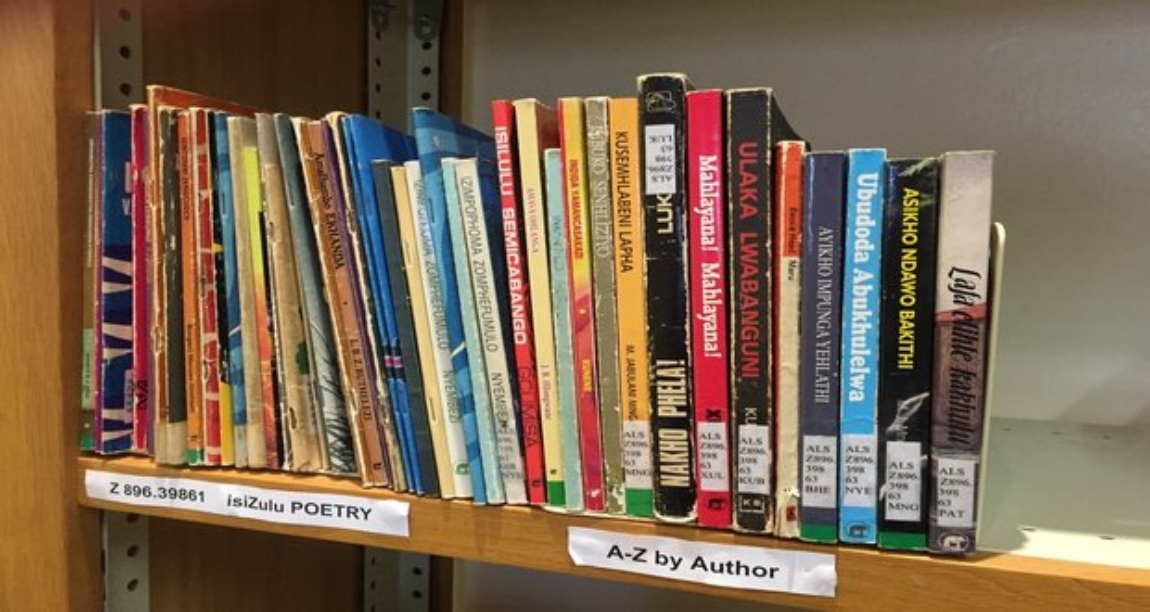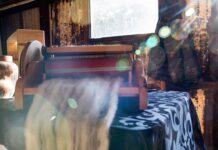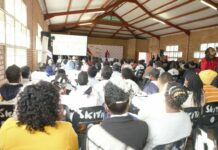The first events of the Time of the Writer 2017 programme kicked off on Tuesday morning at the Mpumalanga library in Hammarsdale, KwaZulu-Natal, featuring Zakes Mda discussing his journey as an author.
The talk included Nakanjani Sibiya and Sabata-Mpho Mokae speaking about language and literature, and Nigerian writer Folu Agoi speaking about his poetry and the process of writing.
During the discussion of his journey as an author, Mda spoke about his childhood, growing up as the son of a man who was frequently arrested as president of the ANC Youth League, and therefore had to move around for much of his youth. He published his first story at thirteen and was paid R2 for it.
“I was so proud of that. I hadn’t realised I could get paid for doing something I loved so much.â€
Many students were eager to ask him questions, and he responded to most of them by imploring the children to read.
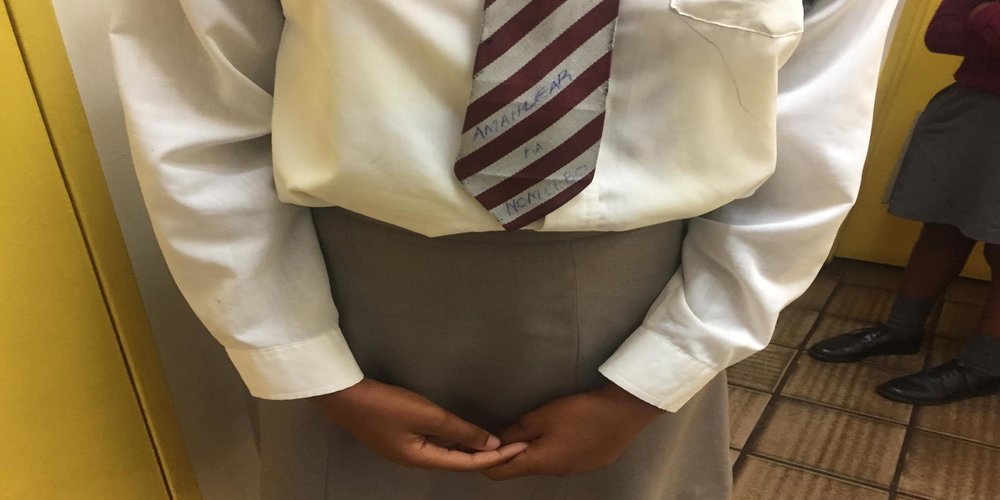
“I come to the library once or twice a year. I think that they’re good for us as young people. I’m not privileged enough to have books to read at home so I read whatever I find. My parents aren’t into reading fiction that much. They prefer stories that talk about real life and impact people’s life. I really think that this library is well-stocked with interesting books, but I don’t have time to visit more often. At school, we come out late and I live very far so I don’t usually come here. This is the only library that I know around the area.â€
Mda said: “If you want to learn how to write, to understand writing, read. Before I was a writer, I was a reader; a vociferous reader.†He said he would even read the inside of Chappies wrappers. “We learn from those who come before us, it is like that with writing. You may be not be aware of who influences you, but they do. The more you write the clearer your own voice becomes.â€
Sibiya and Mokae discussed writing in isiZulu and Setswana respectively, as being yet another process of trying to tell a story in the best way possible. While Sibiya demonstrated this by speaking to the audience in isiZulu, Mokae also talked about the the intricacies of his mother tongue, Setswana, as opposed to English.
“In English,†he said, “an aunt is an aunt. One aunt fits all. In Setswana, my mother’s older sister is ‘senior mother’. Her younger sister is ‘junior mother’. I’m concerned with the art of storytelling using the language I know best. This language gives me access to an archive of linguistic devices, it is easier to tell stories using this language. I write better in Setswana.â€
The Mpumalanga library was filled with schoolchildren from Phezulu High School and various members of the public who came to meet and engage with the writers.
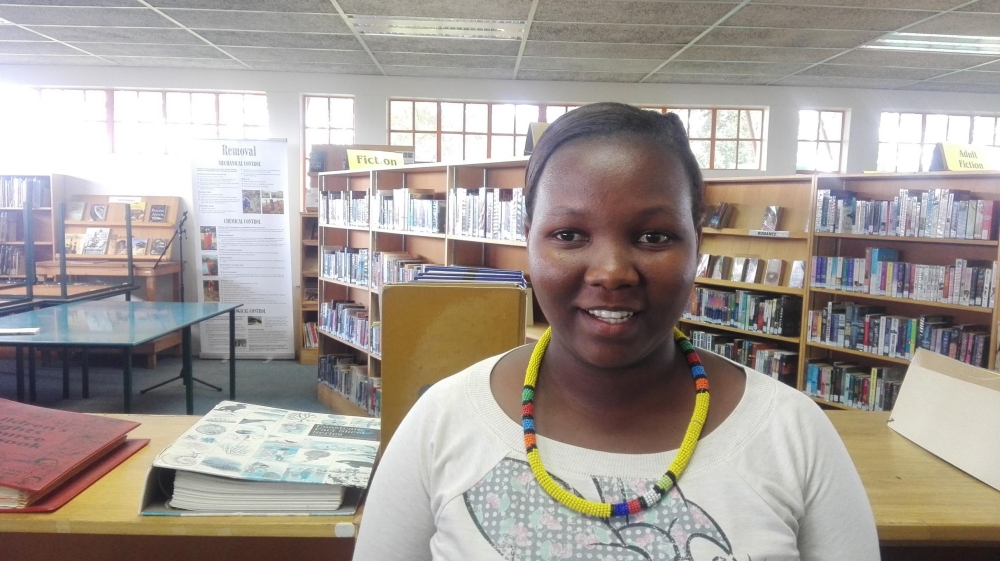
“I love reading novels. Romance can do but I read almost everything. The Mpumalanga library provides us with reading material but it isn’t welcoming. The attitude here is not good. Sometimes they shout at us when we ask about where to find the books. But generally they’re helpful and I like the library, it’s a good place. I don’t want to read boring books; I care about interesting books and I want to see more books in African languages. I think it’s a good thing. I used to write when I was younger but I didn’t take it seriously. No one really thought it was a real job you could do. “
Mokae’s writing inspiration stems from Sol Plaatje, the first African person to translate the works of William Shakespeare into Setswana. He states that, unlike many, he does not write out of concern for language preservation.
“Millions speak the language, so I’m not worried about preservation. We don’t burden people who write in English with that responsibility. Language is a way of knowing and is a huge advantage. I write because there are readers who read in Setswana. It is worth the trouble.â€
Continuing with the decolonial theme of the festival, Mokae spoke highly of the current generation of social activists and revolutionaries. “The new generation – the fallists – so many great things will come out of that generation. They are young enough not to care and to take risks others cannot take.â€
*The learner’s name has been changed
Additional reporting and images by Karuna Pillay

